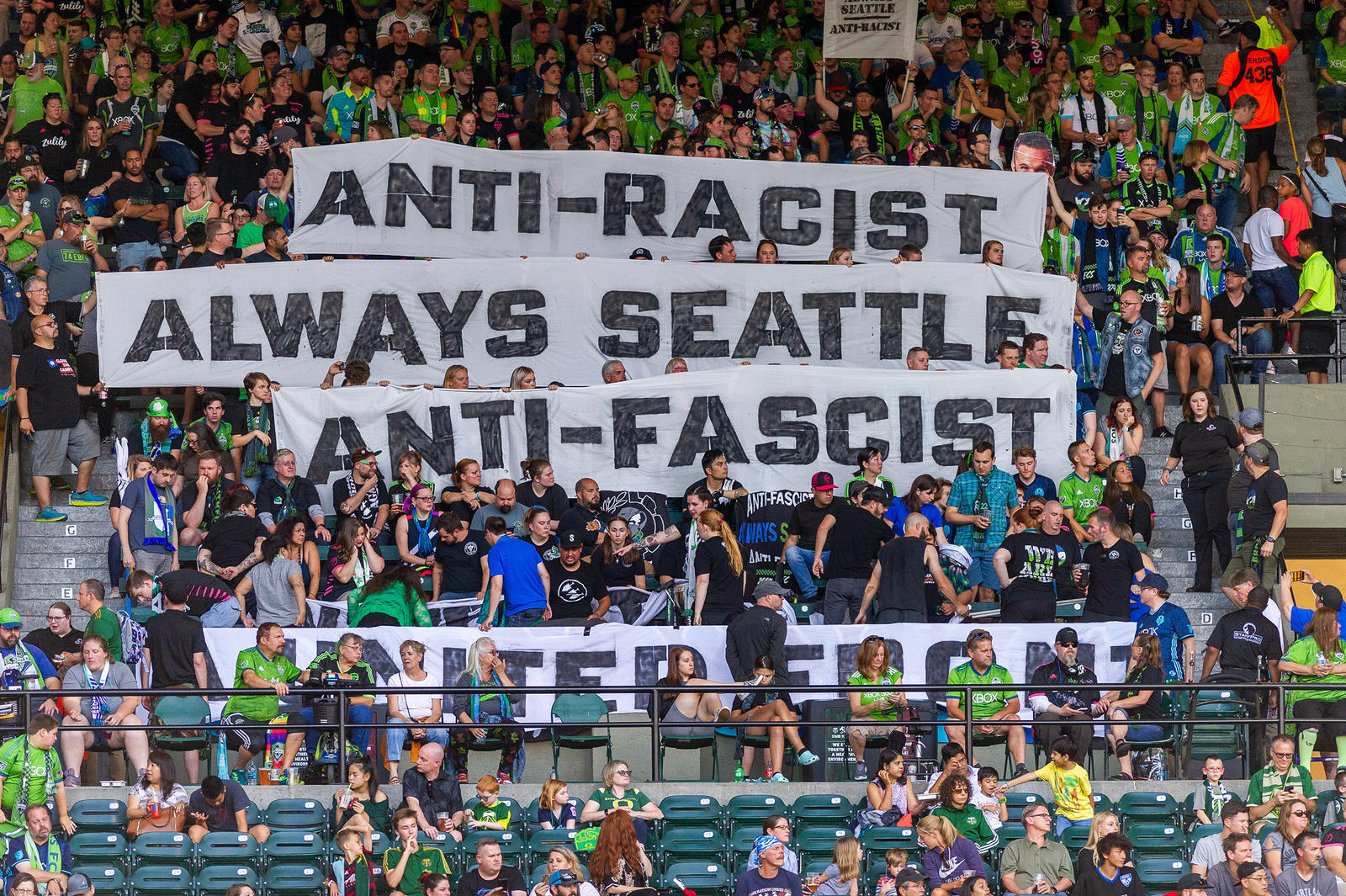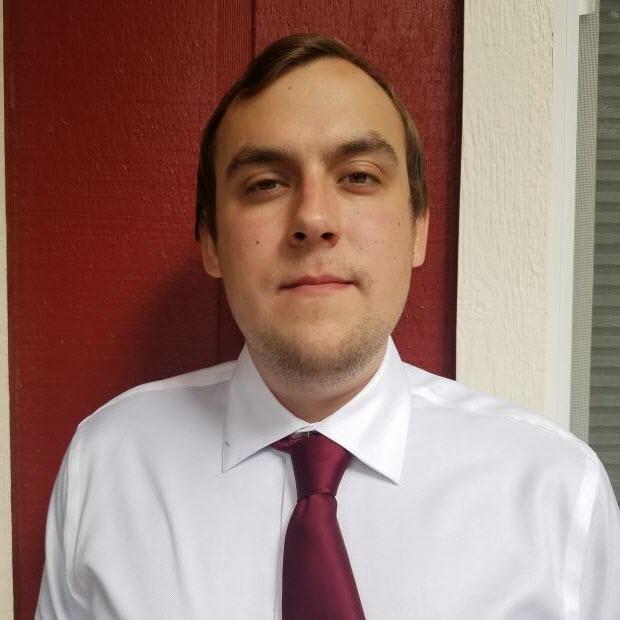Our city is unique as one of the few in the country that explicitly protects political ideology in public accommodation. Seattle law forbids sport arenas and stadiums (and other businesses) from acts that “adversely affect or differentiate” among people based on their “ideas or beliefs, relating to the purpose, conduct, organization, function or basis of government and related institutions and activities.” The Iron Front flag is an expression of solidarity, but also an explicit invocation of a fractured polity and those who seek to hold it together against fascism. It speaks to the barest organizing motives of government: what it should be for, or against. Its display embodies those core ideas and beliefs about the function of our society and the basis of its government that fall squarely within the law’s protection.
Admittedly, the prohibition against discrimination has exceptions: behavior that causes “substantial and material disruption” can be banned — flying a flag in a restaurant, for example. But, at the stadium, it’s clearly not flags as a physical item that are an issue. MLS and the Sounders have reveled in the culture that fan groups have built, including the display of banners and flags. The Sounders’ YouTube channel regularly celebrates the tifos — enormous section-spanning displays — that its supporters produce. Flags are still allowed and flown in every section of the stadium.
It’s not that MLS or the Sounders have actually banned all political displays. Each game begins with the national anthem, as ever. Fans are apparently free to wave the Pride flag, the American flag or the Cascadia flag as they wish. Though some may object that those symbols are so popular and so accepted that they are not political at all, the argument wrongly collapses political and apolitical to simply mean agreeable and disagreeable. One need only recall the fight for marriage equality, the vociferous debate ignited by Colin Kaepernick's protest against racial injustice during the national anthem, and the transnational ambitions of the Cascadia flag’s designer to register the political import of each symbol.
And let us not forget: The MLS is happy enough to profit from politics when it’s convenient. On Aug. 31, just a week after MLS banned political displays at its games, it posted an 18-minute video celebrating Pride and the struggle to achieve equal rights for all those individuals whose sexuality did not conform to bigoted norms. The first minute features a montage of flag waving, cheering supporters at stadiums around the country. It is, throughout the video, the rainbow flag that is given pride of place, communicating to its viewers a crystal clear message: Our league stands with you, the historically vulnerable and outcast in society. Our supporters stand with you.
Except now MLS demands that they do not. Anti-fascism is forbidden. Although the Iron Front symbology embraces a broader mandate than Pride, it is only different in degree — not kind. Fascism, racism and bigotry are the heads of a single hydra. They are expressions of ideologies that hold people separate and irredeemable on the basis of birth. They judge people not by behavior or character, but by arbitrary condemnations of one’s intrinsic being. Against that, the rainbow and Iron Front flags express the same core principle: that no person should suffer violence or abuse because of an accident of birth. Yet MLS muzzles one symbol and celebrates the other.
It’s difficult not to infer that cynical calculation motivates the difference. Public opinion has shifted drastically in favor of gay, lesbian and other varied expressions of sexuality and gender identity within the last decade. Though the work of inclusion remains unfinished, an organization like MLS can now express solidarity without serious risk. And there are business benefits beside. The Pride video features centered, lingering shots of stadium sponsors against the backdrop of rainbow flags, perhaps so that they too can share in progressive goodwill.
When they could be edited into cookie-cutter videos, the fan groups’ independence and advocacy was welcome. But now, when MLS might be asked to take a risk to take the stand it professes, it’s all too much. In almost every other American city, the MLS’s word would be final. But here, in Seattle, the equality of political expression is protected by law, and stadiums are specifically included. MLS and the Sounders may only ban all flags or none.



